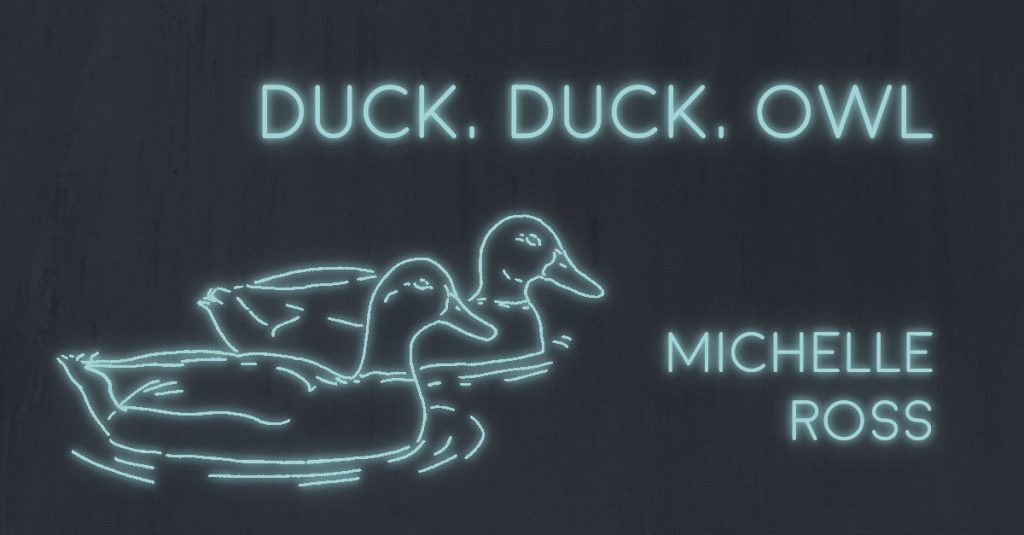
DUCK, DUCK, OWL by Michelle Ross
The ducks are a pair—Mallards from the pond in the nearby park. Every evening, they claim the shallow end of the swimming pool, float in languid circles. They’re not threatened by the woman watching them from the canvas chair. They don’t even startle when she goes inside the house to pour more prosecco. The woman is a divorcée—she’s lived alone in this house twelve years. Her grown daughters transplanted thousands of miles away. Boyfriends have spent the night from time to time, but there’s no boyfriend now. The woman notes the elegant (pompous?) curve of the ducks’ breasts and necks….

